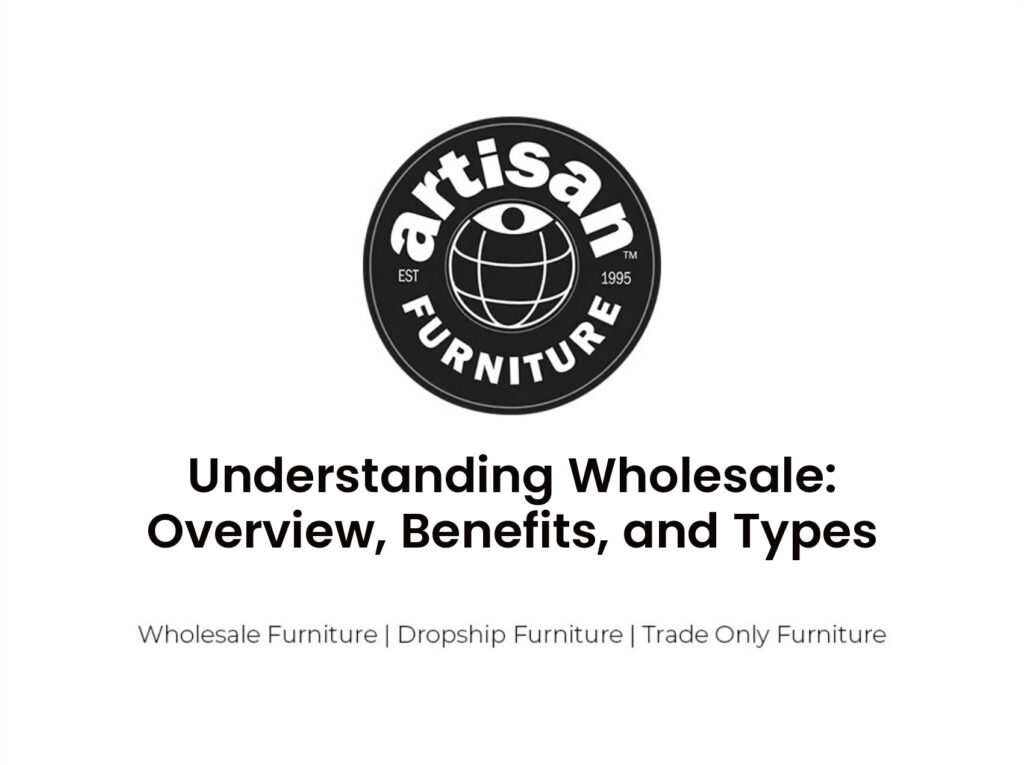Understanding Wholesale: Overview, Benefits, and Types
Wholesaling is a lucrative business model that allows businesses to purchase goods in bulk directly from manufacturers and sell them at a higher price to retailers. By establishing a network of reliable suppliers and staying informed about trending products, wholesalers can provide retailers with up-to-date goods. With research and expertise in a specific industry, wholesalers can build trust with customers and expand into new ventures. This article provides an overview of wholesale, its benefits, different types of wholesale businesses, and how to identify and capitalize on wholesale opportunities.
Table of Contents
ToggleThe Definition and Importance of Wholesale
Wholesale, which involves buying goods in large quantities directly from manufacturers or producing and selling products directly to retailers, is a crucial aspect of the supply chain that allows businesses to buy products at a lower price and sell them for a higher price. This practice is beneficial for businesses as it enables them to save money through bulk purchasing, resulting in discounts. By buying products at a lower cost, businesses can then sell them at a higher price, increasing their profitability. Additionally, wholesale allows businesses to establish direct relationships with manufacturers, ensuring a steady supply of goods. This direct connection eliminates the need for intermediaries, reducing costs and improving efficiency. Overall, wholesale plays a vital role in the supply chain by providing businesses with the opportunity to maximize their profits and streamline their operations.
The Advantages and Benefits of Wholesale
Purchasing products in bulk and selling them at a higher price allows businesses to maximize their profits. By buying in large quantities, businesses can take advantage of lower prices and discounts offered by wholesalers or manufacturers. This allows them to save money on each unit and increase their profit margin when they sell the products at a higher price to retailers or end consumers. Additionally, buying in bulk ensures a steady supply of products, reducing the risk of running out of stock and potentially losing sales. It also allows businesses to negotiate better deals with suppliers and build strong relationships, which can lead to more favorable terms and opportunities for growth. Overall, the practice of wholesale buying and selling provides businesses with the advantage of increased profitability and a competitive edge in the market.
Exploring Different Types of Wholesale Businesses
Brokers act as intermediaries between wholesale operators and clients, negotiating deals for a sales commission. They play a vital role in facilitating transactions and ensuring that both parties are satisfied with the terms of the deal. Here are three key aspects of the broker’s role in the wholesale business:
1) Negotiating deals: Brokers use their expertise and industry knowledge to negotiate favorable terms for both the wholesale operator and the client. They aim to find a balance that benefits both parties and leads to a successful transaction.
2) Building relationships: Brokers focus on establishing strong relationships with both wholesale operators and clients. By building trust and understanding their needs, brokers can effectively match the right products with the right customers and ensure long-term partnerships.
3) Providing expertise: Brokers have in-depth knowledge of the wholesale market and trends. They can offer valuable insights and recommendations to clients, helping them make informed decisions about the products they purchase. This expertise adds value to the wholesale process and enhances the overall customer experience.
Understanding Wholesale Pricing and Profitability
Wholesalers strategically determine pricing to maximize profitability and ensure that both manufacturers and retailers can benefit from the wholesale model. By setting the wholesale price, wholesalers aim to strike a balance between offering competitive prices to retailers while still making a profit. They take into account factors such as production costs, market demand, and competition when determining the pricing structure. Wholesalers also consider the potential volume of sales and the profit margins that retailers can achieve when setting the wholesale price. This ensures that manufacturers receive fair compensation for their products, while retailers have the opportunity to earn a profit when selling to consumers. Ultimately, the goal is to create a win-win situation for all parties involved in the wholesale supply chain.
How to Identify and Capitalize on Wholesale Opportunities
To identify and capitalize on wholesale opportunities, businesses must conduct market research and analyze consumer demand to determine which products have the potential for high sales volumes and profitability. This involves understanding current trends, customer preferences, and market gaps. Once the research is done, businesses can take the following steps to maximize their wholesale opportunities:
-
Identify niche markets: By finding a specific niche or target audience, businesses can focus on providing products that cater to their unique needs and preferences. This allows for differentiation and a competitive edge in the wholesale market.
-
Build strong supplier relationships: Developing strong relationships with reliable suppliers is essential in ensuring a steady supply of high-quality products. This includes negotiating favorable terms, maintaining open communication, and collaborating on product development and improvement.
-
Adapt to market changes: The wholesale market is dynamic and constantly evolving. Businesses must stay updated on market trends, consumer behavior, and industry developments to identify new opportunities and adjust their product offerings accordingly. This flexibility and adaptability are key to staying competitive and maximizing wholesale success.


